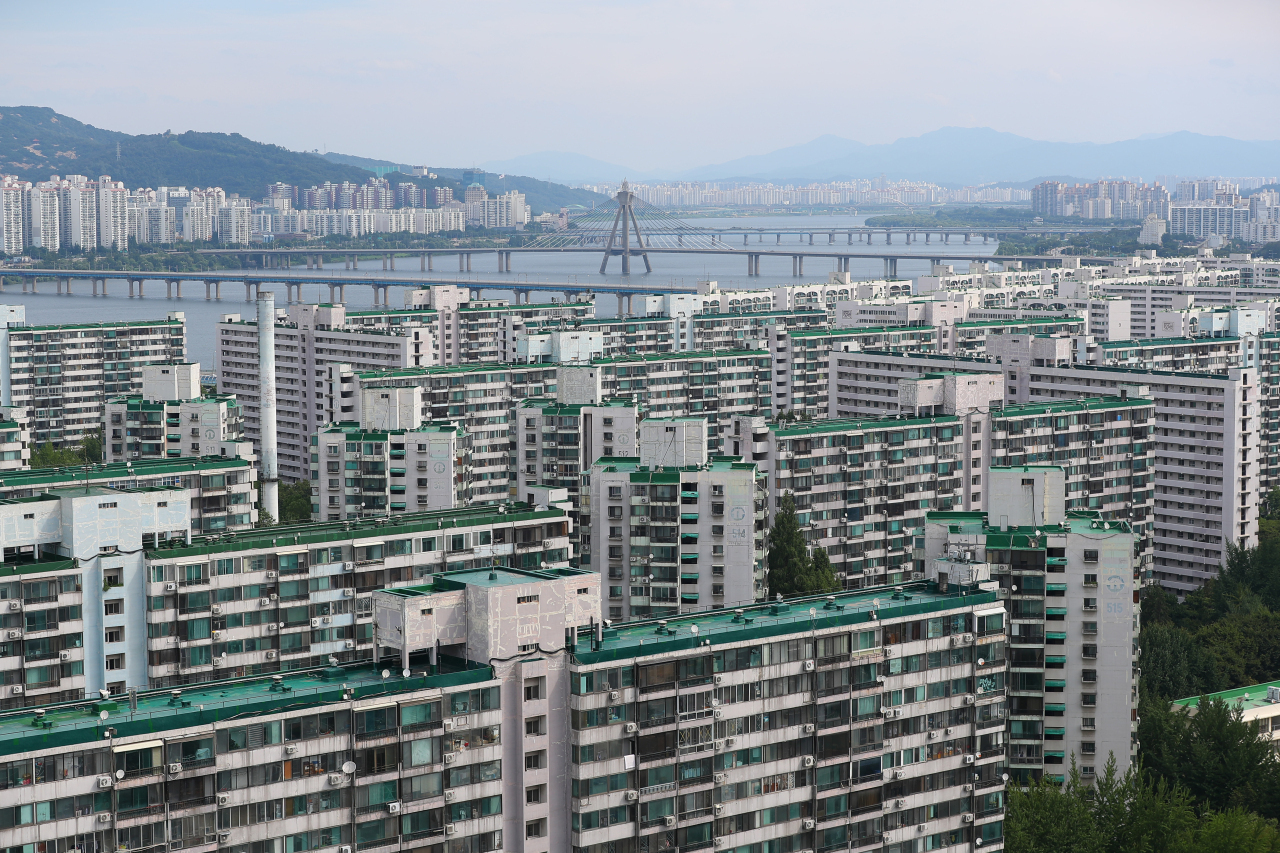 |
Apartment complexes in Seoul (Yonhap) |
‘Ma-yong-seong,’ a portmanteau of three Seoul districts -- Mapo, Yongsan, and Seongdong -- is where Koreans in their 20s and 30s most want to invest, while Gangnam is the place favored by those in their 40s, according to poll results recently released by property data provider Zigbang.
A survey of 1,796 Zigbang subscribers showed that 15.5 percent of participants said they think real estate properties in the three districts are the best investment choices, while 15.3 percent said the most promising investment options are real estate assets in Gangnam, Seocho, or Songpa, three of the most posh districts in Seoul, collectively known as the Greater Gangnam area.
Those aged at 20-39 picked the Ma-yong-seong areas as the best districts to buy property units while 40-somethings preferred the Greater Gangnam area over other districts.
“Mapo, Yongsan, and Seongdong are often favored by young adults as they have easy access to business districts including Jongro and Gangnam as well as to commercial areas like Hongdae, Hapjeong, and Seongsu,” Ham Young-jin, a chief researcher at the property platform company,
Largely, respondents favored places near to where they currently live.
For Seoul citizens, areas located in the southern part of Han River are the best places to invest, followed by three northeastern districts Nowon, Dobong, and Gangbuk, and two satellite cities Hanam and Namyang. Goyang, Paju, and Gimpo, which are located in the west of Seoul, were the least popular investment destinations among Seoulites.
For people living in Gyeonggi Province, Suwon, Yongin, and Seongnam were the most preferred cities, followed by Goyang, Paju and Gimpo, and Hanam and Namyang. Areas near the Han River and the Greater Gangnam area were picked the fewest times.
Those living in Incheon picked their own city as the most promising area to invest.
Of the respondents, 32.9 percent said transportation infrastructure, including high-speed commuter train GTX, subway, and roads, is the most important factor to consider, while 17.8 percent said planned urban redevelopment or reconstruction projects.
More than a third of the survey participants said they hoped for the real estate market to stabilize with the sufficient supply of property units.
The data showed that the participants think regulations on mortgage and personal loans and the nation’s economic condition are some of the factors that affect the real estate market the most.
By Kim Young-won (
wone0102@heraldcorp.com)








![[Today’s K-pop] Blackpink’s Jennie, Lisa invited to Coachella as solo acts](http://res.heraldm.com/phpwas/restmb_idxmake.php?idx=644&simg=/content/image/2024/11/21/20241121050099_0.jpg)